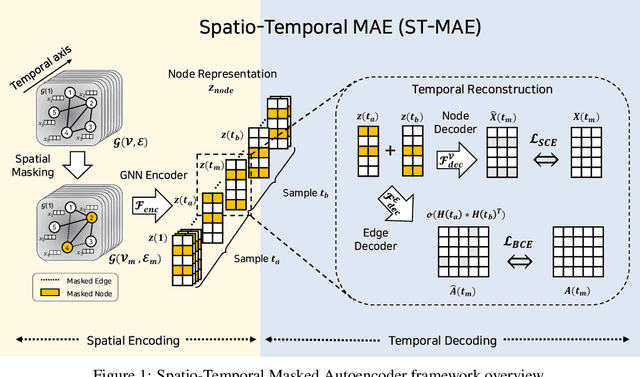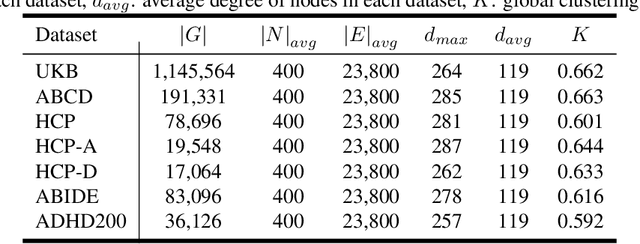A Generative Self-Supervised Framework using Functional Connectivity in fMRI Data
Paper and Code
Dec 04, 2023



Deep neural networks trained on Functional Connectivity (FC) networks extracted from functional Magnetic Resonance Imaging (fMRI) data have gained popularity due to the increasing availability of data and advances in model architectures, including Graph Neural Network (GNN). Recent research on the application of GNN to FC suggests that exploiting the time-varying properties of the FC could significantly improve the accuracy and interpretability of the model prediction. However, the high cost of acquiring high-quality fMRI data and corresponding phenotypic labels poses a hurdle to their application in real-world settings, such that a model na\"ively trained in a supervised fashion can suffer from insufficient performance or a lack of generalization on a small number of data. In addition, most Self-Supervised Learning (SSL) approaches for GNNs to date adopt a contrastive strategy, which tends to lose appropriate semantic information when the graph structure is perturbed or does not leverage both spatial and temporal information simultaneously. In light of these challenges, we propose a generative SSL approach that is tailored to effectively harness spatio-temporal information within dynamic FC. Our empirical results, experimented with large-scale (>50,000) fMRI datasets, demonstrate that our approach learns valuable representations and enables the construction of accurate and robust models when fine-tuned for downstream tasks.
 Add to Chrome
Add to Chrome Add to Firefox
Add to Firefox Add to Edge
Add to Edge